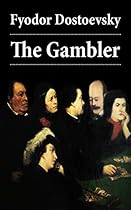

In a London psychiatric hospital; an enigmatic patient claims to be the son of an African dictator - a story that becomes unnervingly plausible. An incendiary tale of race; madness and a Darwinian power struggle at the heart of a dying National Health Service; Blue/Orange premiered at Londons Cottesloe Theatre in April 2000 and transferred to the West End in 2001.Award-winning writer Joe Penhall first rose to prominence in 1994 with his Royal Court play Some Voices and he has been described by the Financial Times as one of the finest playwrights of his generation. Blue/Orange is an accessible and vibrant play; which explores a number of important issues and which makes it a good choice to study. This includes themes of race and representation; sanity and insanity (and in particular the social structures; stigma and complexity surrounding schizophrenia); as well the political context of New Labour and spin; and questions of prejudice and difference.This Student Edition features expert and helpful annotation; including a scene-by-scene summary; a detailed commentary on the dramatic; social and political context; and on the themes; characters; language and structure of the play; as well as a list of suggested reading and questions for further study and a review of performance history.
#879977 in eBooks 2013-09-20 2013-09-20File Name: B00GMIM8UE
Review
7 of 7 people found the following review helpful. An Excellent Portrait of D.C.s Indie Rock Scene in the 1990sBy Jeff the ZombieWhen people talk about D.C. music; they inevitably bring up D.C.s 1980s hardcore scene and Fugazi; which inevitably leads to Ian MacKaye. And its hard not to -- Ians shadow looms large over the nations capitol. His early band; Minor Threat; not only helped start a scene (hardcore punk); but also a movement (straight edge). And Fugazi were legendary for the energy of their live shows; their aggressive politics; as well as their stalwart refusal to sign to a major label. MacKaye didnt just help create a type of music; but he also served as a role model for people in how to handle the business of music. But how many people today remember the other D.C. bands and labels who rose out of the ashes of 1980s hardcore to become nearly as influential to a generation of indie rockers?Capitol Contingency largely focuses on those now-forgotten bands and labels -- including Tsunami; The Dismemberment Plan; Nation of Ulysses; Hoover; Jawbox; Velocity Girl; Chisel; the Heartworms; Tuscadero; Pitchblende and even obscure picks like Frodus and High Back Chairs -- all of whom provide valuable insight into what was at one time one of Americas most revered independent music scenes; as well as provide a sense of a pre-gentrification D.C.; when the city was home to the poor and downtrodden and a few activist musicians who lived in their midst.For me; as someone who came of age in the 1990s D.C. music scene; this is an incredibly important book -- it documents not just music that I loved; but a period of time that I actually lived through and witnessed first hand. As D.C. changes; with many people from those days having moved on to other cities; having a book that depicts what happened is extremely important to keeping the history of those bands alive. If youre at all interested in one of those most influential and fertile music scenes of the 1990s; Capitol Contingency is an excellent place to start.3 of 3 people found the following review helpful. The 90s: This is how it happenedBy Michael JugeWashington DC has often been derided as a transient city lacking an indigenous culture. Yet anyone who has followed the various strains of Indie music knows that Washington DC was a fertile ground for some of the most influential bands throughout the 80s and 90s even if they remain virtually unknown in the mainstream; and Brandon Gentry was there to witness it. In interviews with notable musicians from the time and musicians who were influenced by them; Brandon Gentrys "Capitol Contingency" explores that period where such Indie bands like Nation of Ulysses and Fugazi emerged as pioneers not only as musicians but also as producers of the nascent independent record label industry. Gentrys interviews with these musicians illustrate how the backdrop of 90s; the dawn of the information age; influenced the musicians varying styles; their confidence to create and develop their unique sound without the need for a large corporate label behind them and how these musicians influenced not only the overall Indie scene in the 90s; but also the political and cultural impetus that drove them to create music in the first place. "Capitol Contingency" captures the mood of the time. Gentry has an authenticity as someone who was there and followed these bands from the time he was a teen yet his seasoned knowledge provides an authority on the subject that few could rival. Indeed the 90s was a revolution in music; politics; lifestyle and culture; and "Capitol Contingency" gives voice to a lesser known locus of that revolution.